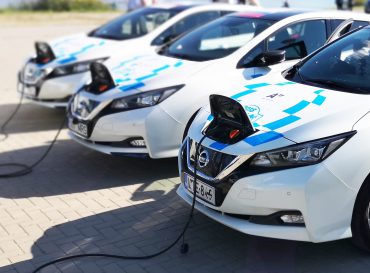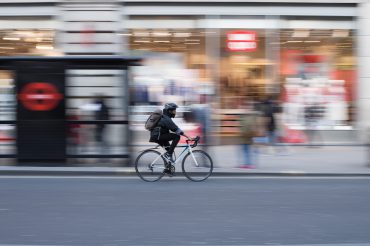Sharing is charitable by nature. The concept of allowing strangers access to what we own or don’t need might sound unfathomable to those used to the concept of ownership, but in these days of spiralling living costs and a move away from owning physical products, the world is waking up to the many benefits of sharing.
In our quest to highlight these benefits and encourage Liftshare users to think about ways they can help others beyond the road, we’ve been reaching out to a number of UK charities to showcase some of the great work they do. Our first port of call is Royal Blind, an Edinburgh-based charity geared towards helping visually-impaired children and adults achieve a brighter future.
The charity runs five main services: The Royal Blind School provides specialist education for young people up to 18-years, Forward Vision is a resident and respite service for 18-25 year-olds, Braeside House is a care home for visually-impaired older people, The Scottish Braille Press is a high-quality braille print and audio service and lastly, Kidscene is an after-school and holiday club for children with and withotu disabilities.
Royal Blind aims to help the visually-impaired through every step of their life, and when we spoke with Kitty Douglas-Hamilton, she discussed the life-changing extent of losing one’s vision. “The impact of sight loss can have a devastating impact on lives.
“Sight loss has a massive emotional impact and means having to re-learn every aspect of life. How do I get down to the shops, how do I read? How do I clean and cook meals? How do I continue with social and leisure activities and maintain friendships?
“Social isolation is a major problem. As people grow older social networks break down as friends and relatives pass away. The impact is even more acute for older people who are visually Impaired. People face real problems. Often they have difficulties trying to access health services, are more prone to lack self confidence and their overall health is adversely affected. This group of people are more prone to depression.
“Rehabilitation is vital – with the right emotional and practical support it is possible to make the transition and re-build your life. Rehabilitation makes a vital difference in providing new skills that maximise a persons independence and quality of life.”
Douglas-Hamilton explains that social support is a key cog in ensuring blind individuals do not suffer emotionally or mentally as a result fo their impairment, and this is thanks – in large part to being unfamiliar with the environment around them. This can prove both daunting and genuinely upsetting. Mobility and getting about are also central challenges, and it’s true that even the most familiar and regularly-trodden of footpaths or pavements can quickly become unfamiliar and filled with hazards like road works or ice.
However, Royal Blind is striving to raise funds to help people in need, and much of its work goes hand-in-hand with the sharing economy ethos – such as people dedicating their time to volunteer when needed, or hosting events with others to generate donations.
“Our main focus is on our 2 annual campaigns: National Braille Week in October and Royal Blind Week end of February,” Douglas-Hamilton tells us. “Royal Blind Week is our annual fundraising and awareness raising week for Royal Blind. There are some fantastic ways the public can get involved. You can host a raffle or tombola, or even better participate in our Blind for A Day Challenge.
“We encourage the public to get involved in events such as the office bake off, and encourage people to share their fundraising events on social media. Fundraising is open to everyone and we encourage family, friends and colleagues to get involved and raise funds to support blind and partially sighted people across Scotland.”
Raised money goes towards a variety of places, such as new equipment for Royal Blind’s care home Braeside House, or smaller items such as double-handed mugs which makes processes we take for granted – such as drinking a cup of tea, much more manageable for blind people. It’s easy to forget that with clear vision we can do most things without set-backs, but for the visually-impaired, even the simplests of tasks can become problematic.
Douglas-Hamilton concludes by stressing that even the smallest of contributions will help Royal Blind meet its aims and if Liftsharers would like to know more, the charity is open to hearing from drivers willing to offer travel support to members at either Braeside House or the Royal Blind School.
Are you up to the task? If so, check out the Royal Blind site for more information or drop them a call on 0131 229 1456.
Author liftshare
on
Comments are closed.
You might also like…
See how Liftshare can help your organisation



